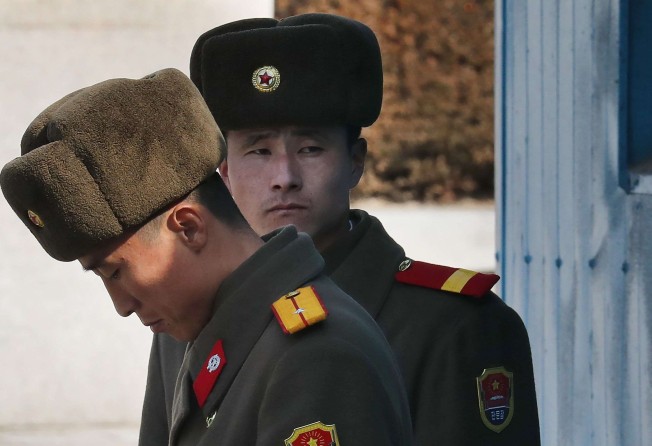North Korean defectors urge China to help people fleeing hermit state
Women who escaped from North Korea say many caught in China face severe punishment after they are forcibly returned to their homeland

Three North Korean women joined activists at a panel discussion in New York with the goal of pressuring Beijing to help defectors from the reclusive state rather than sending them back to face severe punishment.
“In China, tens of thousands of North Korean women are hiding and living in fear of capture by the Chinese authorities,” said Lee So-yeon, a former soldier who fled her country in 2008 and is now a leading activist in South Korea.
Many of the women, she said, are sold to men in China with prices ranging from US$4,000 for women in their 20s to US$2,000 for those in their 40s.
“The greatest fear for women who are forced to leave is deportation to North Korea,” she said.
Those who are caught by the Chinese authorities and sent back face the prospect of punishment meted out in prison camps, correctional training centres or labour training camps.
Life is especially harsh for women who have become pregnant by Chinese men, with some of them facing execution, she said.
Lim Hye-jin left her country in 1998 during the famine crisis. Once she crossed into China with a broker she was forcibly married to his brother, before becoming pregnant and was later rounded up by Chinese officials while working at a market.
After repatriation she escaped back into China, but was brought back to the North once again. Eventually, she made a third escape and arrived in South Korea in 2002, but without her daughter.
Grace Jo also fled North Korea. She wound up in the United States with her mother and older sister in 2008 after facing repatriation by the Chinese authorities following their defection.
“We went to China to survive, but because of the Chinese government’s brutal treatment we lived in fear,” said Jo.
She, along with Lim and Lee, were among some 20 people who walked to China’s UN mission from the Armenian Church in Manhattan, where they had gathered for the panel discussion on Friday connected with the United Nations’ annual two-week Commission on the Status of Women.
The group attempted to deliver a letter addressed to President Xi Jinping, but was unable to do so as no one answered the door to accept it. Instead they made statements and held signs on the steps of the building.
The commission is the main intergovernmental body focused on the promotion of gender equality and the empowerment of women.
Organisers said it was the first time the North Korean women were able to take part.
The letter asked Xi to provide refugees coming into China from North Korea “safe passage to a third country”, urged him to cease returning them to North Korea and to work with the UN Human Rights Council to safely resettle them.
“The Chinese government is pretty stubborn. They don’t show us a lot of differences or changes toward North Korean defectors,” Jo said.